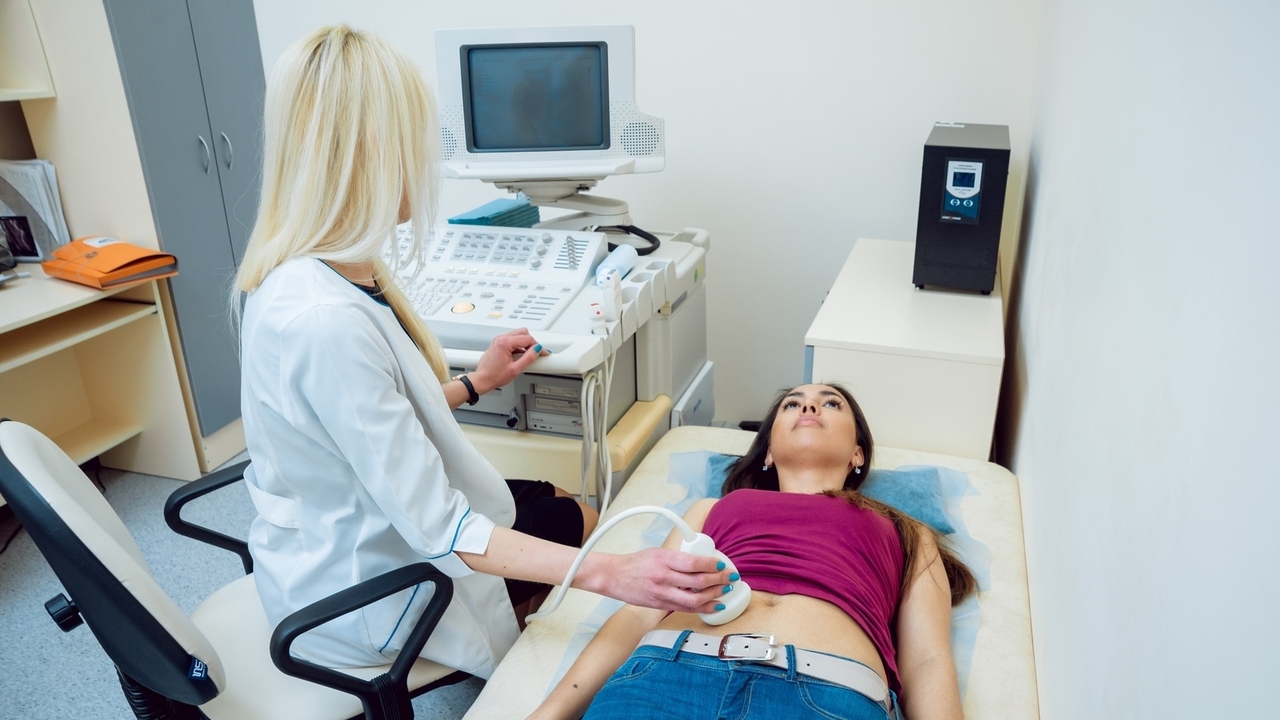 Samo Trebizan/Fotolia
Samo Trebizan/Fotolia
It was about 2 a.m. I woke to a pain like someone had thrust a hand in my gut, grabbed my internal organs and started twisting. I was covered in sweat. Vomit rose in my throat.
“Chris,” I said to my new husband, uttering his name with a long, rising pitch like the beginning of panic. He reflected later that he understood, before he was fully awake, that something was terribly wrong.
“I need help.” An understatement. I thought I might be dying.
We got up, quickly dressed and Chris drove me to the ER. There was a flurry of activity. I was whisked behind a curtain. My husband was kept outside and questioned — embarrassing questions.
We had only been married six weeks. One of the happy parts of this story is that just six weeks earlier I didn’t have insurance.
Before our wedding in the 1990s, I had been working three jobs with no benefits and no health insurance. Those were the days before universal health care. If I felt ill, I just pushed on without seeing a doctor, unless absolutely necessary.
In fact, I did have similar symptoms about a year before — not quite as severe, also in the middle of the night. I just lay in bed, sweating and feverish and worried, hoping it would pass.
Luckily, it did. Luckily, now married, I had insurance.
Behind the ER curtain, the doctors asked me my sexual history. The word “chlamydia” was thrown around. Yay, chlamydia.
For a Catholic couple who had practiced abstinence until the wedding night, this was a bit insulting. Could we have a little credit, here, guys?
So with my gut gripped in a giant’s fistful of pain, being probed by strangers, I was imagining my Dudley-do-right husband at some wild bachelor party with a lapful of strippers.
I was given an ultrasound. A large, grapefruit-sized mass was found on my right ovary.
Things got a little quieter. There was no more talk of VD. I was instructed in grave tones to see a gynecologist the next morning. Well, it was morning. In a few hours.
A few hours later the OB-GYN greeted me warmly. “It’s not often ovarian cancer in someone your age, but I did just have a 20-year-old patient die of it.”
Awesome.
Ovarian Cancer?(1)
Ovarian cancer presents few symptoms in the beginning, so it would not have been out of the realm of possibility that I could have had it.
The following symptoms occur as ovarian cancer progresses:
- Abdominal bloating, swelling or pain
- Lack of appetite or feeling full very quickly
- Frequent or urgent need to urinate
- Change in bowel habits
- Change in menstrual periods or bleeding between periods
- Back pain
- Weight gain or loss
Within hours I was being prepped for surgery. “You won’t perform a hysterectomy, will you?” I asked.
My husband and I were hoping for a big family. About that time the nurse handed me an emesis basin and I obliged by vomiting into it.
“I can’t promise you that,” the doctor said. “I have to see what I find.”
There hadn’t been enough time to digest all the possibilities: loss of fertility, cancer, death. My last memory before going under was my father rushing into pre-op to kiss me.
I awoke while being wheeled out of the OR, my father and husband seemingly shouting over me, “You’re going to be fine! Everything’s fine!”
The surgeon performed a laparotomy, an incision through the abdominal wall to gain access to the abdominal cavity. When he cut me open, he told me later, he was met with profuse blood.
“Blood!” he announced, almost happily. Not cancer. A ruptured ovarian cyst.
Ovarian Cysts
Ruptured cysts most commonly occur in women of reproductive age between 18 - 35 years old. I was 26.
The symptoms of ovarian cysts include: (2)
- Pelvic pain
- Pain during bowel movements
- Nausea or vomiting
- Breast tenderness
- Abdominal heaviness
I don’t recall having any of these symptoms prior to waking in bed in pain that night. I did have severe mood swings, crying throughout our honeymoon, crying through the first weeks of our marriage. I thought at the time I was adjusting to a new phase of life and grieving the old.
Ruptured cysts are common. Every month, a menstruating woman experiences a follicular rupture when she ovulates. 3. My circumstance was rare, an intraperitoneal hemorrhage. What caused the intense abdominal pain was a belly full of blood.
Ruptured cysts present with the acute onset of abdominal pain (emphasis on acute) and can be associated with these symptoms:(3)
- Vaginal bleeding
- Nausea and/or vomiting
- Weakness
- Syncope, a temporary loss of consciousness caused by a fall in blood pressure.
- Shoulder tenderness
- Circulatory collapse
While the causes of ruptured cysts are not fully understood, two known risk factors are abdominal trauma and anticoagulation therapy. (3)
I was lucky, only losing a portion of my right ovary. After surgery, I was placed on the birth control pill to cease ovulation while my ovary healed. I was warned that scar tissue on my ovary, and potential future scar tissue from future cysts, could make conceiving a child more difficult.
Recovery was long and slow. I was in a post-graduate program at the time. While I left class with a group of students, I was on a slow boat to China, arriving midway across the campus alone and creeping late into classes. It took a long time to build back my strength.
My OB-GYN had encouraged me not to delay pregnancy too long. After healing, a baby boy was conceived five months later, and a baby girl three years after that. I can vouch for the fact that the pain of labor doesn’t hold a candle to the pain that woke me that night in early marriage.
If you feel pain beyond the normal twinges of monthly ovulation, make an appointment with your gynecologist. If you feel overwhelming, intense abdominal pain, don’t just sweat it out. Seek help immediately.
The gravity of a ruptured ovarian cyst varies widely. It may heal on its own with nothing more than a little relief from ibuprofen, or it may deprive other organs of blood flow which can be potentially deadly. (4)
Reviewed February 12, 2016
by Michele Blacksberg RN
Edited by Jody Smith
https://www.mskcc.org/cancer-care/types/ovarian/about-ovarian/symptoms
2) Ovarian Cysts. MayoClinic.com. Retrieved February 10, 2016.
http://www.mayoclinic.org/diseases-conditions/ovarian-cysts/basics/symptoms/con-20019937
3) Ovarian Cyst Rupture. medscape.com. Retrieved February 10, 2016.
http://emedicine.medscape.com/article/253620-overview
4) Management of Ruptured Ovarian Cyst. saintlukeshealthsystem.org. Retrieved February 11, 2016.
http://www.saintlukeshealthsystem.org/health-library/management-ruptured-ovarian-cyst






Add a CommentComments
There are no comments yet. Be the first one and get the conversation started!